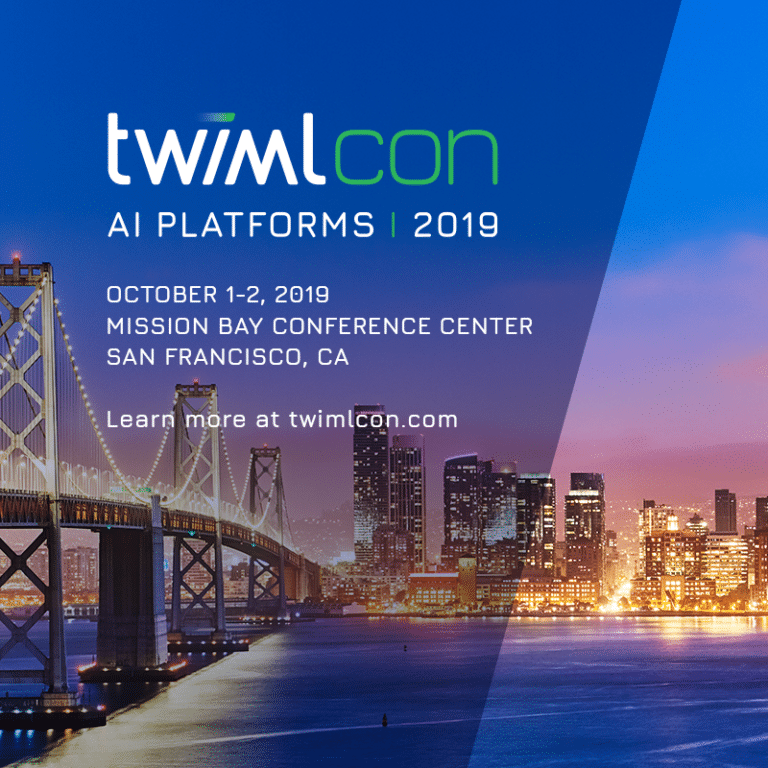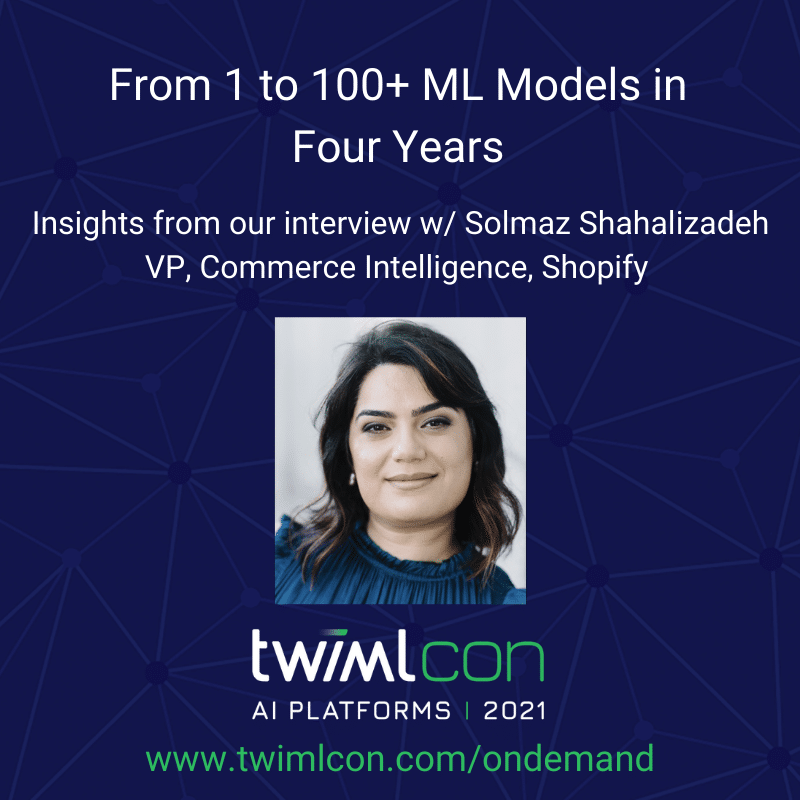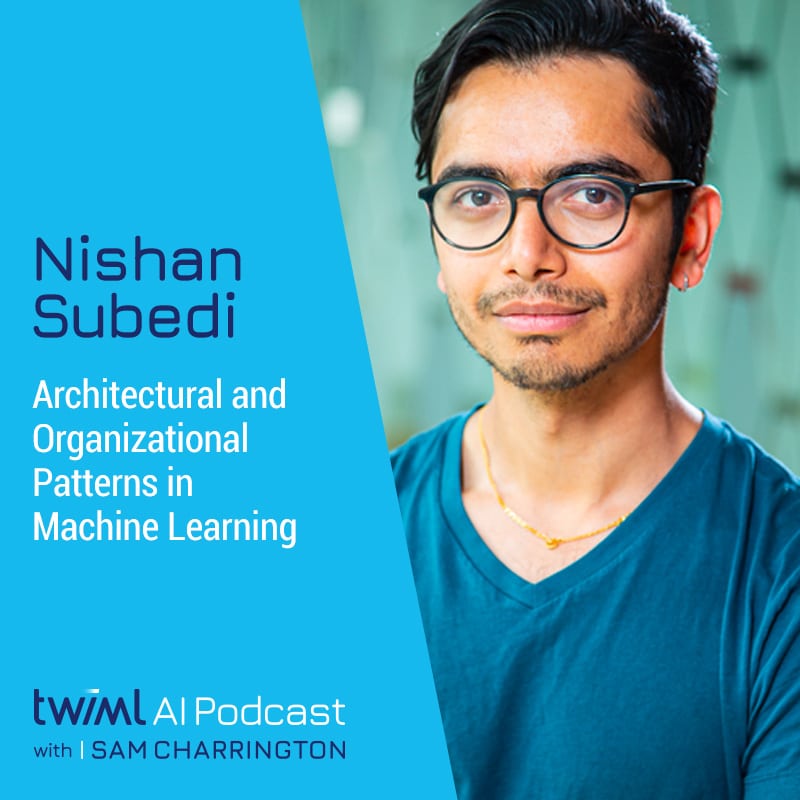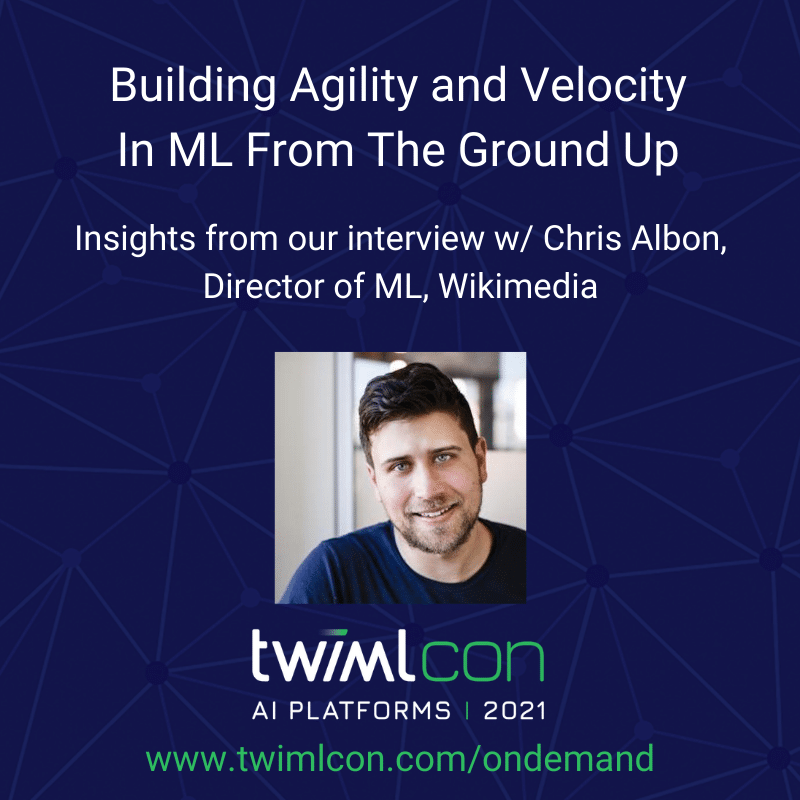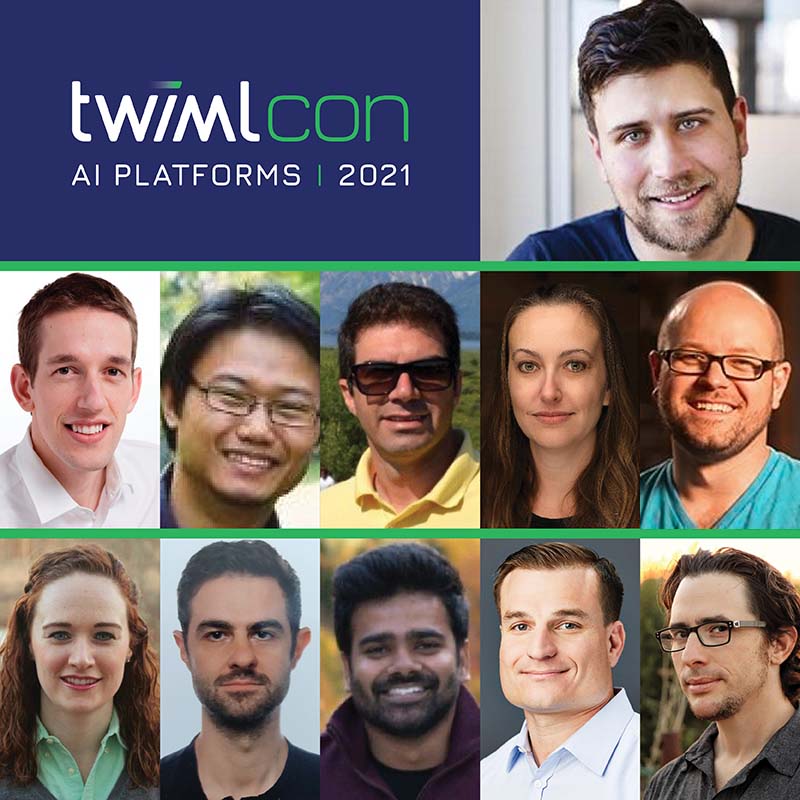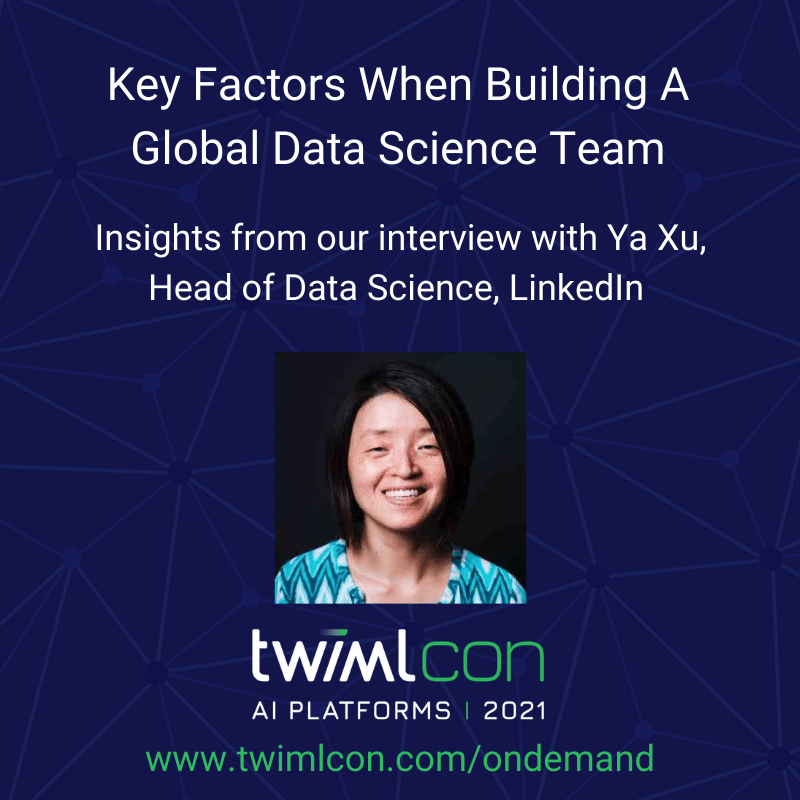There’s no doubt about it. Machine learning and AI are getting real in the enterprise. Many of the ML/AI leaders and practitioners I speak to report being in a similar place: With their initial POC projects maturing, and a few successes under their belts, their colleagues across the business finally get it. They’re ready. They want in. Meaning, the various line-of-business leaders want to apply the power of machine learning to their own businesses.
Great news, right? Maybe.
The problem is that successfully delivering an ML proof-of-concept requires a very different set of skills, approaches, and technologies than successfully supporting a portfolio of ML efforts at scale and in production.
I’m organizing a conference, TWIMLcon: AI Platforms, that is bringing together ML and AI leaders and practitioners as well as experts from across the industry to take a deep look at this important topic and share and learn from one another. (Check out a few of the great speakers we’ve announced here.)
Here are the top 8 things that enterprises need to work on in order to move beyond POCs and successfully scale ML and AI across the organization.
1. How to organize your ML workflows for greater productivity and support them with platform technologies.
At TWIMLcon we’ll hear case studies from companies like SurveyMonkey, Zappos, NVIDIA and a bunch more, exploring various aspects of how they got there.
2. How to eliminate low-value, repetitive, or just frustrating tasks so that data scientists and ML engineers can spend their time on what’s most important.
This is what Airbnb’s Atul Kale calls in our interview eliminating the incidental complexity of ML, so that Data Scientists and ML Engineers can focus on its inherent complexity.
3. How to increase the speed and consistency with which useful models are created.
This is the one I hear folks get the most excited about, especially those in leadership. There’s growing appreciation that increasing speed and reducing cycle time is core to using ML as an engine for innovation and transformation.
4. How to eliminate the barriers to getting models into production, and how to manage their lifecycle once they’re there.
Building ML models is one thing. Getting them into production and effectively managing their lifecycle is another altogether. I’m particularly looking forward to my live podcast interview with Andrew Ng, where we’ll explore the things he’s seen successful companies do to get deep learning into production.
5. What your peers across different industries are doing to industrialize their own machine learning efforts.
Learning from others and taking what you hear back to your own organization is a cheat-code for innovation in a nascent, fast-moving space! It’s also important to know how to translate what others are doing to your own unique needs, and I’ll be touching on this in my keynote interview with Cruise’s Hussein Mehanna.
6. How to incorporate fairness, accountability, transparency, ethics and governance into ML/AI workflows.
This is an important topic that we’ve spent a lot of time covering on the TWIML AI Podcast. I’m excited to have Rachel Thomas (the newly appointed Director of the USF Center for Applied Data Ethics, among other things) on our Operationalizing AI Ethics panel to discuss this.
7. What are the most promising tools & technologies to help meet your ML/AI goals.
The most successful model-driven companies have all invested heavily in tooling and platforms that allow them to achieve goals like faster cycle times, more accurate models, great success productionalizing models, and more. Until recently, if you wanted this kind of tooling you had to build it yourself. Now companies like SigOpt, Cloudera, Fiddler Labs, Verta AI, Valohai, Weights and Biases, and Figure Eight offer either end-to-end platforms or specialized components that can help your organization achieve it’s ML goals more rapidly.
(These companies and more will be on hand to demo their products at #TWIMLcon.)
8. How to organize ML and data science organizations for greater success.
This is a biggie. Last but definitely not least. Organization and culture can be the wind in your sails or what holds you back. On of our panels on this topic will feature StitchFix’s Eric Colson, whose interview with me on this topic you should definitely check out, and Twitter’s Pardis Noorzad, whose post Models for Integrating Data Science Teams Within Organizations is worth a look.
If you made it this far, I think you’d really enjoy what we’ve got planned for TWIMLcon: AI Platforms. Hit the link below to sign up, or reach out with any questions!

